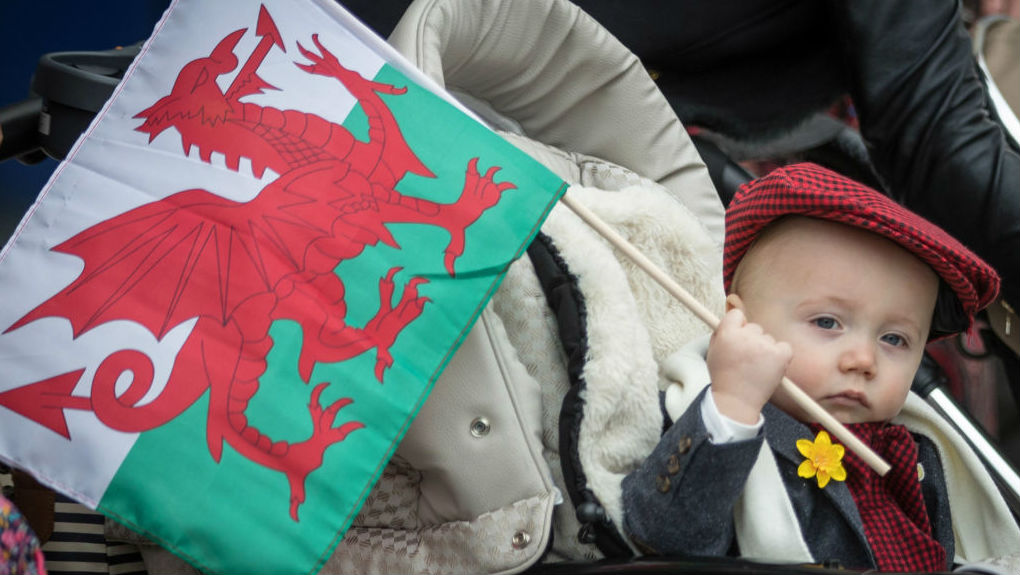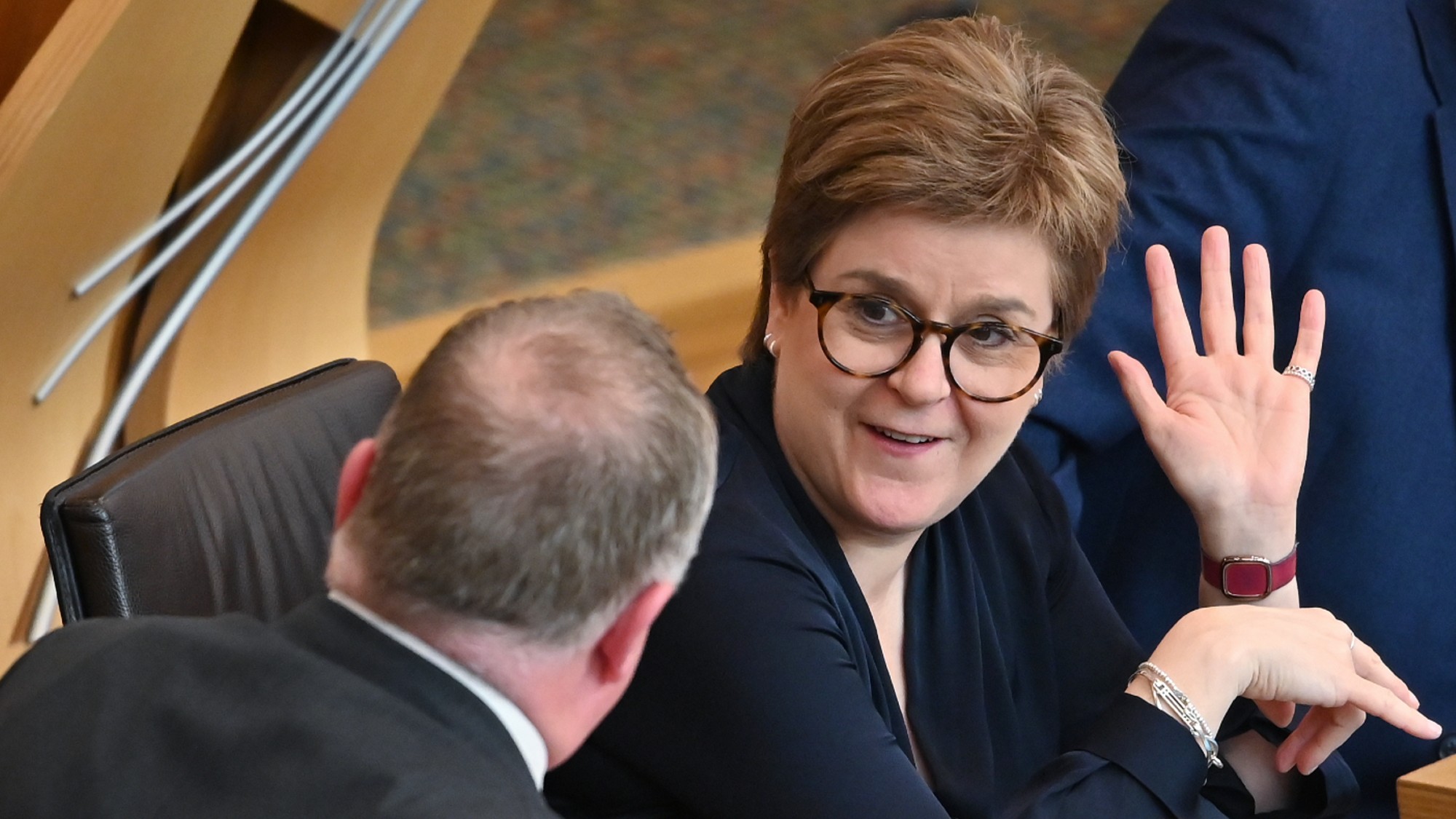Could Wales follow Scotland in demanding independence?
Plaid Cymru says second attempt at Scottish breakaway would spell end of UK

A free daily email with the biggest news stories of the day – and the best features from TheWeek.com
You are now subscribed
Your newsletter sign-up was successful
Nicola Sturgeon's plans for a second Scottish independence vote has given fresh ammunition to separatist movements in Wales who are now demanding their own freedom from Westminster rule.
Leanne Wood, leader of the Welsh nationalist party Plaid Cymru and head of opposition in the Welsh Assembly, said a vote for independence in Scotland would spell the "end of the UK as a state".
"In that situation, Wales would need to decide its own future," she said in a statement.
The Week
Escape your echo chamber. Get the facts behind the news, plus analysis from multiple perspectives.

Sign up for The Week's Free Newsletters
From our morning news briefing to a weekly Good News Newsletter, get the best of The Week delivered directly to your inbox.
From our morning news briefing to a weekly Good News Newsletter, get the best of The Week delivered directly to your inbox.
"A national debate to explore all of the options, including that of independent Wales, must take place in Wales when that scenario becomes a realistic one."
Is there a case for Welsh independence?
In Scotland, which overwhelmingly voted against Brexit in the June 2016 referendum, the Scottish National Party argues that independence is the only way to avoid following the UK out of the EU.
However Welsh voters actually voted to leave the EU at a higher percentage than those in England, so Plaid Cymru cannot accuse Westminster of defying the will of the Welsh people.
A free daily email with the biggest news stories of the day – and the best features from TheWeek.com
Nonetheless, Leanne Wood says that now is a "good time" for Wales to consider its own "national interests" and its response to any "new constitutional scenario".
The Plaid Cymru leader said that Westminster must not mistake Wales's Brexit vote for permission to proceed without consultation, warning that if the Welsh national interest was overlooked, "support will grow for greater control of our own affairs".
Is there popular support for independence in Wales?
Not really. In polls taken in recent years, the percentage of Welsh people keen on independence has hovered below 10 per cent, compared to the 45 per cent of Scots who voted to break away from the UK in 2014.
The separatist movement in Wales faces similar challenges to those that defeated the SNP in 2014, namely convincing voters of the economic viability of independence and the future security of their pensions and welfare benefits.
The bad news for Plaid Cymru is that far from fuelling nationalist sentiments the 2014 Scottish independence referendum actually reduced Welsh voters' enthusiasm for separatism.
A poll conducted in the aftermath of the Scottish vote put support for an independent Wales at a less than encouraging three per cent, says The Guardian.
However, if Scotland goes through with independence in 2018 or 2019, the constitutional ramifications of their departure could jolt the Welsh independence movement to life.
A cut-down United Kingdom would significantly change Wales's status within the union – and not for the better, says Martin Shipton in Wales Online.
"With Scotland gone, England would be in an even more dominant role in the UK than it is at present," he writes, leaving Wales as a "very junior partner" in an unbalanced union.
-
 The environmental cost of GLP-1s
The environmental cost of GLP-1sThe explainer Producing the drugs is a dirty process
-
 Greenland’s capital becomes ground zero for the country’s diplomatic straits
Greenland’s capital becomes ground zero for the country’s diplomatic straitsIN THE SPOTLIGHT A flurry of new consular activity in Nuuk shows how important Greenland has become to Europeans’ anxiety about American imperialism
-
 ‘This is something that happens all too often’
‘This is something that happens all too often’Instant Opinion Opinion, comment and editorials of the day
-
 How corrupt is the UK?
How corrupt is the UK?The Explainer Decline in standards ‘risks becoming a defining feature of our political culture’ as Britain falls to lowest ever score on global index
-
 The high street: Britain’s next political battleground?
The high street: Britain’s next political battleground?In the Spotlight Mass closure of shops and influx of organised crime are fuelling voter anger, and offer an opening for Reform UK
-
 Is a Reform-Tory pact becoming more likely?
Is a Reform-Tory pact becoming more likely?Today’s Big Question Nigel Farage’s party is ahead in the polls but still falls well short of a Commons majority, while Conservatives are still losing MPs to Reform
-
 Five takeaways from Plaid Cymru’s historic Caerphilly by-election win
Five takeaways from Plaid Cymru’s historic Caerphilly by-election winThe Explainer The ‘big beasts’ were ‘humbled’ but there was disappointment for second-placed Reform too
-
 Taking the low road: why the SNP is still standing strong
Taking the low road: why the SNP is still standing strongTalking Point Party is on track for a fifth consecutive victory in May’s Holyrood election, despite controversies and plummeting support
-
 Nicola Sturgeon's memoir: making the personal political
Nicola Sturgeon's memoir: making the personal politicalTalking Point Former Scottish first minister attempts to set record straight in 'Frankly' but does she leave more questions than answers?
-
 What difference will the 'historic' UK-Germany treaty make?
What difference will the 'historic' UK-Germany treaty make?Today's Big Question Europe's two biggest economies sign first treaty since WWII, underscoring 'triangle alliance' with France amid growing Russian threat and US distance
-
 Is the G7 still relevant?
Is the G7 still relevant?Talking Point Donald Trump's early departure cast a shadow over this week's meeting of the world's major democracies